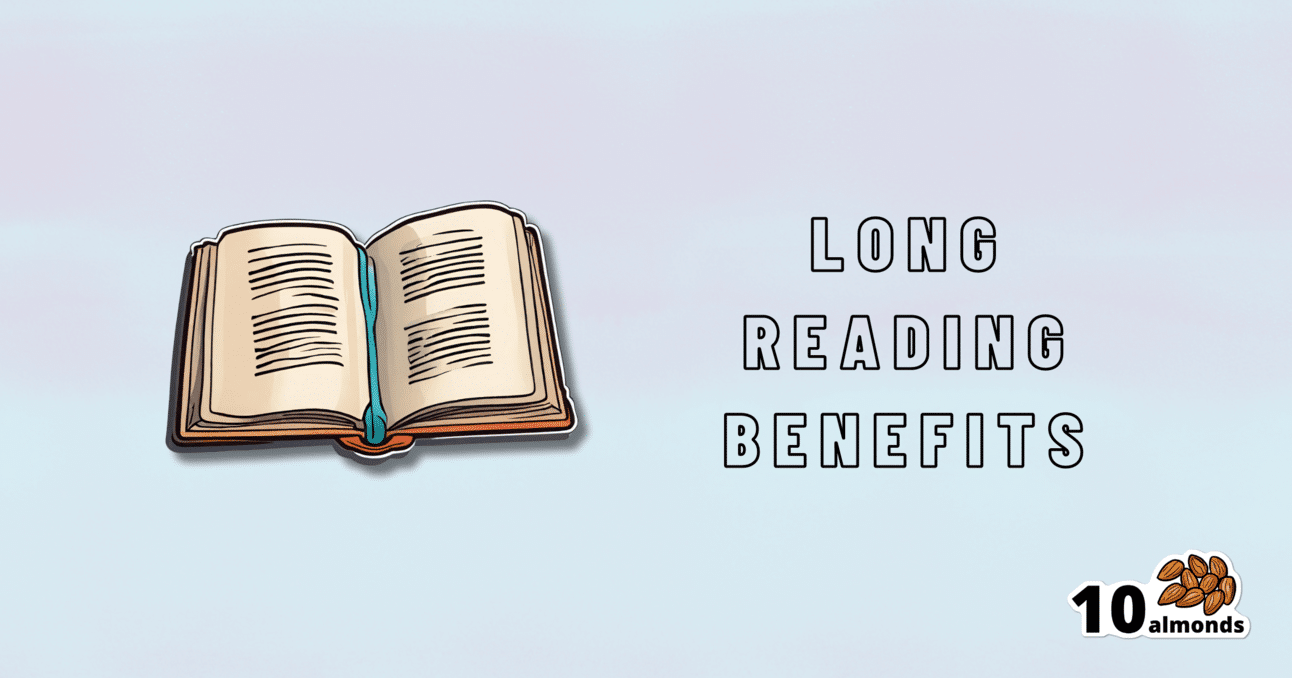Reading As A Cognitive Exercise
Engage with your reading for cognitive benefits. Speed, medium, and active participation all play a role in maximizing the benefits.

Reading, Better
It is relatively uncontroversial to say that reading is good for cognitive health, but we don’t like to make claims without science if we can help it, so let’s get started:
There was a 2021 study, which found that even when controlling for many other factors, including highest level of education, socioeconomic status, and generalized pre-morbid intelligence:
❝high reading activity, as defined by almost daily reading, was associated with lower odds of cognitive decline, compared to low reading activity❞
Source: Can reading increase cognitive reserve?
However, not all reading is the same. And this isn’t just about complexity or size of vocabulary, either. It’s about engagement.
And that level of engagement remains the key factor, no matter how quickly or slowly someone reads, as the brain tends to automatically adjust reading speed per complexity, because the brain’s “processing speed” remains the same:
Read more: Cognitive coupling during reading
Everyone’s “processing speed” is different (and is associated with generalized intelligence and executive functions), though as a general rule of thumb, the more we practice it, the faster our processing speed gets. So if you balked at the notion of “generalized intelligence” being a factor, be reassured that this association goes both ways.
So is the key to just read more?
That’s a great first step! But…
The key factor still remains: engagement.
So what does that mean?
It is not just the text that engages you. You must also engage the text!
This is akin to the difference between learning to drive by watching someone else do it, and learning by getting behind the wheel and having a go.
When it comes to reading, it should not be a purely passive thing. Sure, if you are reading a fiction book at bedtime, get lost in it, by all means. But when it comes to non-fiction reading, engage with it actively!
For example, I (your writer here, hi), when reading non-fiction:
- Read at what is generally considered an unusually fast pace, but
- Write so many notes in the margins of physical books, and
- Write so many notes using the “Notes” function on my Kindle
And this isn’t just like a studious student taking notes. Half the time I am…
- objecting to content (disagreeing with the author), or
- at least questioning it, or which is especially important, or
- noting down questions that came to my mind as a result of what I am reading.
This latter is a bit like:
- when you are reading 10almonds, sometimes you will follow our links and go off down a research rabbit-hole of your own, and that’s great!
- sometimes you will disagree with something and write to tell us, and that’s great too (when this happens, one or the other or all of us will learn something, and yes, we have published corrections before now)!
- sometimes what you read here will prompt a further question, and you’ll send that to us, and guess what, also great! We love questions.
Now, if your enjoyment of 10almonds is entirely passive, don’t let us stop you (we know our readers like quick-and-easy knowledge, and that’s good too), it’s just, the more you actively engage with it, the more you’ll get out of it.
This, by the way, was also a lifelong habit of Leonardo da Vinci, which you can read about here:
How to Think Like Leonardo da Vinci: Seven Steps to Genius Every Day – by Michael J. Gelb
👆 a very good book that we reviewed last year
How you read (i.e. what medium) matters too!
Are you reading this on a desktop/laptop, or a mobile device? That difference could matter more than the difference between paper and digital, according to this study from 2020 that found…
❝The cumulation of evidence from this and previous studies suggests that reading on a tablet affords different interactions between the reader and the text than reading on a computer screen.
Reading on a tablet might be more similar to reading on paper, and this may impact the attentional processes during reading❞
What if my mind wanders easily?
You can either go with it, or train to improve focus.
Going with it: just make sure you have more engaging reading to get distracted by. It’s all good.
Training focus: this is trickier, but worthwhile, as executive function (you will remember from earlier) was an important factor too, and training focus is training executive function.
As for one way to do that…
If you’d like a primer for getting going with that, then you may enjoy our previous main feature:
No-Frills, Evidence-Based Mindfulness
Enjoy!
Share This Post
Learn To Grow
Sign up for weekly gardening tips, product reviews and discounts.




